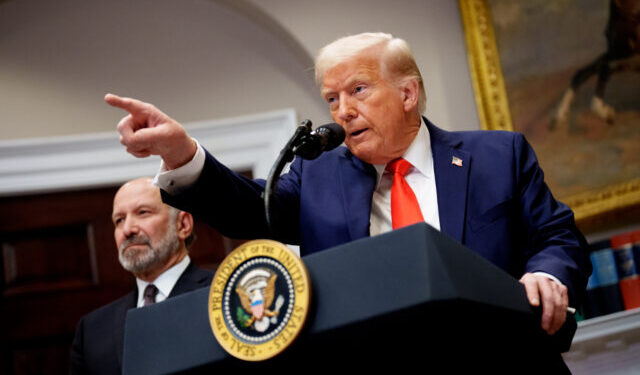President Trump’s tariff strategy just delivered another major win for America.
On Tuesday, Ontario Premier Doug Ford backed down from a planned 25% surcharge on electricity exports to the U.S., a move that was meant to retaliate against Trump’s new tariffs on Canadian steel and aluminum.
But instead of hurting the United States, Canada blinked first.
Ford’s announcement came after a tense back-and-forth between the two countries, proving yet again that Trump knows how to negotiate from a position of strength—and that his “America First” trade policy is delivering real results.
Ontario’s electricity surcharge was meant to be a counterpunch against Trump’s bold move to reimpose 25% tariffs on Canadian steel and aluminum imports.
But it didn’t work.
Within hours, Ford caved, announcing Ontario would suspend its levy after talks with U.S. Commerce Secretary Howard Lutnick.
“I’m not out to hurt the American people,” Ford told reporters in Toronto, according to the Wall Street Journal.
“Sometimes you have to play your cards, and this is one of the cards we played, and hopefully we’re going to have a very good constructive conversation.”
Translation? Canada tried to fight back but quickly realized it was outmatched.
Despite intense lobbying from U.S. corporations and foreign governments to weaken or delay Trump’s tariffs, the White House made it crystal clear: There will be NO exemptions.
White House spokesperson Kush Desai confirmed Tuesday:
“Pursuant to his previous executive orders, a 25% tariff on steel and aluminum with no exceptions or exemptions will go into effect for Canada and all of our other trading partners at midnight, March 12th.”
Unlike Biden’s weak approach, which allowed foreign countries to walk all over American workers, Trump is sending a powerful message: America will no longer be a doormat for unfair trade practices.
Trump didn’t stop at steel and aluminum. He made it clear he’s ready to take things even further if necessary.
In a bold message on Truth Social, Trump warned Canada that any further retaliation could lead to harsh tariffs on automobile imports—a move that would be devastating to Canada’s auto industry.
Trump wrote:
“If Canada wants to keep playing games, I will substantially increase tariffs on their auto imports, which would permanently shut down the automobile manufacturing business in Canada. America can build its own cars.”
Canada, which heavily depends on auto exports to the U.S., simply can’t afford to test Trump’s resolve.
With Trump’s April 2 deadline for new trade negotiations quickly approaching, the pressure is all on Canada to come to the table on America’s terms.
Adding to Canada’s problems, Prime Minister-designate Mark Carney—set to take over from the wildly unpopular Justin Trudeau—now faces an immediate crisis in dealing with Trump’s trade demands.
Carney tried to paint Trump’s tariffs as an attack on Canadian households, but the reality is simple:
🇺🇸 Trump is standing up for American workers.
🇨🇦 Canada is facing the consequences of years of bad trade deals.
With Doug Ford now scheduled to meet with U.S. Commerce Secretary Howard Lutnick in Washington this Thursday, it’s clear Canada has been forced back to the negotiating table.
And just like that, Trump’s tariffs are already working.
Tuesday’s events prove yet again that Trump’s tariff strategy is about more than just taxes on imports—it’s a powerful negotiating tool to force foreign countries to treat America fairly.
Under Biden, Canada and other countries walked all over us, enjoying one-sided trade deals at the expense of American workers.
But Trump has flipped the script.
No more unfair trade. No more free rides. No more weak leadership.
Canada just learned the hard way: Trump means business.
Do you support Trump’s tough stance on trade, or do you think Canada should have been given an exemption?
Reply to this email and let us know your thoughts!




















